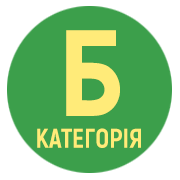PHYSICAL TRAINING AND PHYSICAL EDUCATION AS SIDES OF A SINGLE PROCESS
Abstract
The article highlights theoretical conclusions. Physical training and physical education are important components of a single process aimed at the development and maintenance of human physical culture. These two aspects are closely interconnected and complement each other, forming a holistic approach to strengthening health, increasing work capacity and improving the quality of life. Physical training involves purposeful training of a person’s physical qualities, such as strength, endurance, speed, flexibility and coordination. Physical education covers a wide range of activities aimed at teaching the theoretical and practical foundations of physical culture and sports. Physical training and physical education should be considered as two sides of a single process aimed at the harmonious development of the individual. They provide a comprehensive approach to health promotion, formation of sustainable skills and knowledge, as well as motivation for continuous self-improvement in the physical sphere. The urgency of the problem of physical training and physical education is due to the need to strengthen the health of the population, reduce economic costs for medical care, improve the general level of education, social integration and mental well-being. Solving this problem requires a comprehensive approach that includes both the development of physical qualities through training and the provision of adequate education about a healthy lifestyle and the importance of physical activity. The synergistic effect of combining physical training and physical education consists in their mutual strengthening and creation of new opportunities for the comprehensive development of the individual. This combination ensures more effective assimilation of knowledge, formation of healthy habits, increased motivation for physical activity and improvement of the general state of health of the population. Physical education is a critically important aspect in the comprehensive development of an individual, and its importance cannot be overestimated. It contributes to the formation of not only physical qualities, but also mental, emotional and social skills. Proper physical education is a fundamental component of overall personality development. It promotes not only physical health, but also mental well-being, mental development and social skills. The integration of physical education into educational programs and its support at all levels of education are important to ensure the harmonious development of each individual and the creation of a healthy and active society.
References
2. Рудий І. Вплив спорту на всебічний розвиток особистості. В: Матеріали ХІХ Міжнар. наук.-практ. конф.; 2019; Київ : НАУ; 2019. С. 308–309.
3. Сергієчко Л. П. Практикум з психології спорту : навч. посібник для студентів вищих навчальних закладів фізичного виховання і спорту. Харків : ОВС; 2008. 256 с.
4. Donnelly J. E., Hillman C. H., Castelli D., et al. Physical activity, fitness, cognitive function, and academic achievement in children: A systematic review. Medicine, Science in Sports, Exercise, 48(6), 2016. 1197–1222.
5. Gibala M. J., Little J. P., Macdonald M. J., Hawley J. A. Physiological adaptations to low‐volume, high‐intensity interval training in health and disease. The Journal of Physiology, 590 (5), 2012. 1077–1084.
6. Lee I. M., Shiroma E. J., Lobelo F., et al. Effect of physical inactivity on major non-communicable diseases worldwide: an analysis of burden of disease and life expectancy. The Lancet, 380 (9838), 2012. 219–229.
7. Murray N. G., Low B. J., Hollis C., Cross A. W., Davis S. M. Coordinated school health programs and academic achievement: a systematic review of the literature. Journal of School Health, 77 (9), 2007. 589–600.






